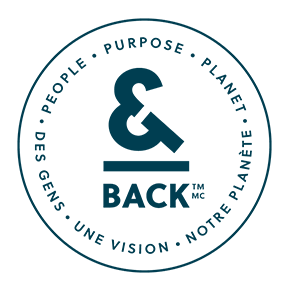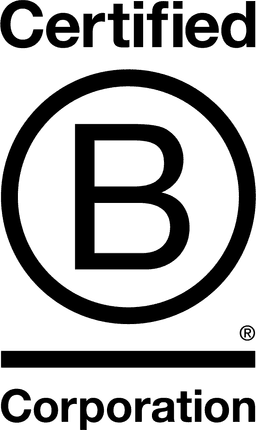

ANDBACK COFFEE

Ontario, Canada
May 2024
Food products
Wholesale/Retail
Canada,
United States
&BACK COFFEE, a Women-Owned company, aims to help businesses seamlessly infuse more purpose and impact into their daily operations. By using coffee as a daily touchpoint, &BACK helps companies achieve their diverse supplier inclusion goals and responsibility commitments while engaging and connecting their employees, customers, and stakeholders. We do this through our commitments to ethical sourcing, being responsible stewards for the planet and our dedication to giving back to initiatives helping farmers along the coffee belt in order to ensure viable and prosperous futures in coffee farming. Our work is framed and rooted in a suite of certifications and commitments to both people and the planet, including the United Nation’s SDG goals, with a particular focus on ending poverty, gender equality, life on land, and responsible consumption and production. &BACK COFFEE is 100% responsibly sourced with Fairtrade and Rainforest Allicance Arabica beans. Through our partnerships with 1% for the Planet, Climate Neutral and Omnidegradable packaging, we are committed to doing our part for the environment and reducing our operating footprint. We are proud to be B Corp Certified, an independent third-party certification that verifies our environmental and social performance.
Overall B Impact Score
Governance 19.9
Governance evaluates a company's overall mission, engagement around its social/environmental impact, ethics, and transparency. This section also evaluates the ability of a company to protect their mission and formally consider stakeholders in decision making through their corporate structure (e.g. benefit corporation) or corporate governing documents.
What is this? A company with an Impact Business Model is intentionally designed to create a specific positive outcome for one of its stakeholders - such as workers, community, environment, or customers.
Community 97.5
Community evaluates a company’s engagement with and impact on the communities in which it operates, hires from, and sources from. Topics include diversity, equity & inclusion, economic impact, civic engagement, charitable giving, and supply chain management. In addition, this section recognizes business models that are designed to address specific community-oriented problems, such as poverty alleviation through fair trade sourcing or distribution via microenterprises, producer cooperative models, locally focused economic development, and formal charitable giving commitments.
What is this? A company with an Impact Business Model is intentionally designed to create a specific positive outcome for one of its stakeholders - such as workers, community, environment, or customers.
Environment 6.8
Environment evaluates a company’s overall environmental management practices as well as its impact on the air, climate, water, land, and biodiversity. This includes the direct impact of a company’s operations and, when applicable its supply chain and distribution channels. This section also recognizes companies with environmentally innovative production processes and those that sell products or services that have a positive environmental impact. Some examples might include products and services that create renewable energy, reduce consumption or waste, conserve land or wildlife, provide less toxic alternatives to the market, or educate people about environmental problems.
Customers 3.2
Customers evaluates a company’s stewardship of its customers through the quality of its products and services, ethical marketing, data privacy and security, and feedback channels. In addition, this section recognizes products or services that are designed to address a particular social problem for or through its customers, such as health or educational products, arts & media products, serving underserved customers/clients, and services that improve the social impact of other businesses or organizations.